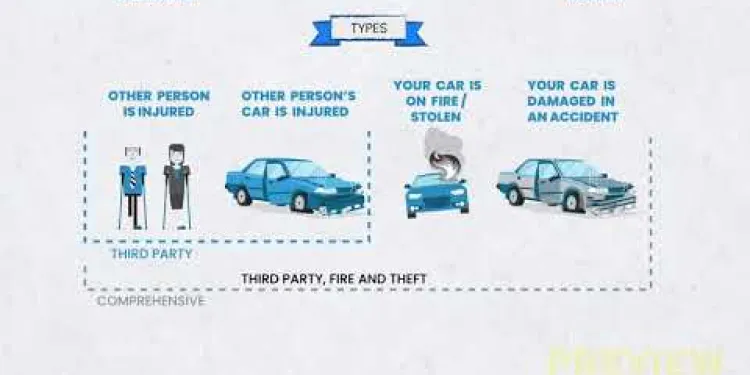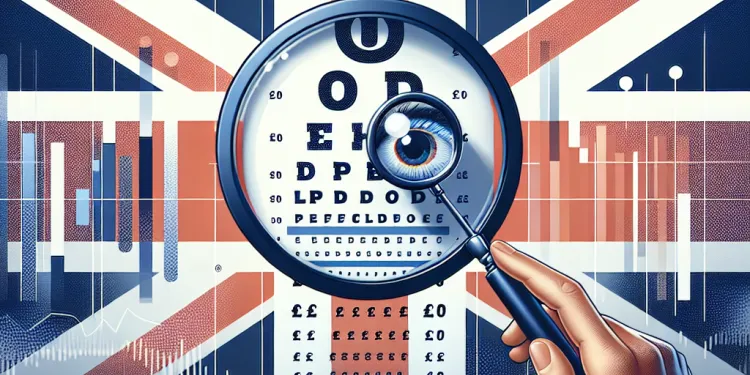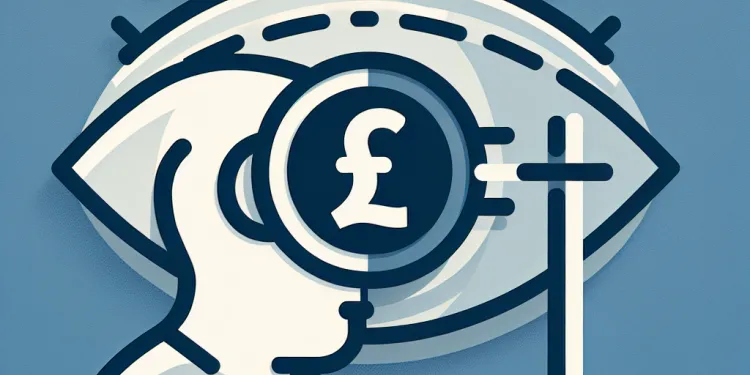
Find Help
More Items From Ergsy search
-

Do insurance plans cover the cost of self-testing tools?
Relevance: 100%
-

Does life insurance cover funeral costs?
Relevance: 40%
-

Are self-tests a substitute for professional eye exams?
Relevance: 38%
-

Should I share the results of my self-tests with my eye doctor?
Relevance: 36%
-

Will insurance cover the cost of home colorectal cancer tests?
Relevance: 35%
-

Where can I find reliable self-testing tools for my eyes?
Relevance: 35%
-

Do I need any special equipment for eye self-testing?
Relevance: 34%
-

How often should I self-test my eyes?
Relevance: 34%
-

What are the limitations of self-testing for eyes?
Relevance: 34%
-

Why would someone need to self-test their eyes?
Relevance: 34%
-

Can self-testing detect all eye conditions?
Relevance: 33%
-

What is self-testing for eye patients?
Relevance: 33%
-

What types of self-tests are available for eye patients?
Relevance: 32%
-

What age groups can benefit from self-testing?
Relevance: 31%
-

Is it possible for self-tests to cause harm?
Relevance: 31%
-

Are Wegovy tablets covered by insurance?
Relevance: 30%
-

Is Wegovy covered by health insurance?
Relevance: 30%
-

Explaining Car insurance in the UK??
Relevance: 30%
-

How do I use a vision chart for self-testing?
Relevance: 30%
-

Does insurance cover Ozempic?
Relevance: 30%
-

What should I do if I notice changes during self-testing?
Relevance: 29%
-

Are weight loss jabs covered by insurance?
Relevance: 29%
-

How does self testing for eye patients work?
Relevance: 28%
-

Should You Get Life Insurance UK | Life Insurance & Life Assurance
Relevance: 27%
-

Do UK citizens need travel insurance for Europe?
Relevance: 27%
-

Can boundary disputes be insured against?
Relevance: 26%
-

Can I use a smartphone for self-testing my eyes?
Relevance: 25%
-

What are the costs associated with Paillon treatment?
Relevance: 25%
-

Are professionals insured against negligence claims?
Relevance: 25%
-

Will insurance cover Ozempic for weight loss?
Relevance: 25%
-

Are there specific tools provided for job efficiency?
Relevance: 25%
-

How can dangerous driving affect my insurance?
Relevance: 24%
-

Do insurance rates increase for drivers over 70?
Relevance: 24%
-

Can self-testing help me track my prescription changes?
Relevance: 24%
-

Can I get a loan to cover funeral costs?
Relevance: 23%
-

Planning for your funeral
Relevance: 23%
-

Rising Cost of Living: How Families Can Cope
Relevance: 23%
-

How much does hip replacement surgery cost in the UK?
Relevance: 23%
-

What if I have gaps in my National Insurance record?
Relevance: 23%
-

What is an asthma action plan?
Relevance: 22%
Introduction to Self-Testing Tools
Self-testing tools have become increasingly popular, particularly amidst the rise of health consciousness and technological advancements. These tools allow individuals to conduct various health tests at home, ranging from blood pressure monitoring to more sophisticated diagnostic tests like glucose levels and cholesterol tests. As their popularity grows, many people in the UK are considering the financial aspect of self-testing, particularly whether insurance plans cover the cost of such tools.
Understanding Insurance Coverage in the UK
In the UK, healthcare is primarily funded through the National Health Service (NHS), which provides a wide range of health services free at the point of use. However, some individuals choose to purchase additional private health insurance for services not covered by the NHS or for quicker access to healthcare services. The extent to which these private insurance plans cover the cost of self-testing tools varies significantly.
Private Insurance and Self-Testing Tools
Private health insurance policies in the UK typically offer broader coverage than the NHS, including access to private hospitals and specialists. However, coverage for self-testing tools is not universal. Some comprehensive insurance plans may reimburse the cost of certain self-testing kits, particularly those recommended by a general practitioner or specialist as part of a treatment plan. It is crucial for policyholders to review their insurance documentation or speak with their insurance provider to understand their specific coverage details regarding self-testing tools.
NHS and Self-Testing Tools
The NHS generally does not cover the cost of self-testing tools that are considered non-essential. However, the NHS provides certain self-testing services as part of routine health management, such as test strips for diabetics, provided these are prescribed by a healthcare professional. For other types of self-testing kits, individuals generally need to cover the costs out of pocket unless they find an alternative through private insurance or public health initiatives.
Considerations for Choosing Self-Testing Tools
When considering self-testing tools, individuals should weigh the costs against the benefits and convenience provided. It is advisable to consult with healthcare professionals before relying on self-testing kits to ensure their accuracy and necessity. Additionally, consumers should research whether any financial support or coverage is available through their existing insurance plans or if there are specific plans that offer such benefits.
Conclusion
In summary, while self-testing tools offer valuable convenience and health monitoring capabilities, their costs may not always be covered by insurance plans in the UK. The level of coverage available depends largely on the type of insurance policy and whether the tools are deemed medically necessary. Individuals interested in utilizing these tools should carefully explore their insurance options, consult health professionals, and evaluate the potential benefits before investing in them.
Introduction to Self-Testing Tools
Self-testing tools are new and popular. They help people check their health at home. You can test things like blood pressure and sugar levels. People in the UK are thinking about if their insurance will pay for these tools.
Understanding Insurance Coverage in the UK
In the UK, the NHS pays for most health services. This is usually free for everyone. Some people also buy private health insurance. Private insurance can cover things the NHS does not and sometimes offer faster service. What private insurance covers can be very different between plans.
Private Insurance and Self-Testing Tools
Private health insurance in the UK usually covers more than the NHS, like private hospitals. But not all insurance covers self-testing tools. Some plans might pay for self-testing kits if a doctor says you need them. It is important to check with your insurance to see what they cover.
NHS and Self-Testing Tools
The NHS does not usually pay for self-testing tools if they are not essential. But they do provide some tools, like test strips for diabetes, if a doctor prescribes them. You may need to pay for other self-testing kits yourself unless you have private insurance or find a public health program that helps.
Considerations for Choosing Self-Testing Tools
Think about how much the tools cost and what they help with. It is good to talk to a doctor before using self-testing kits to make sure they work well for you. Also, check if your insurance will help pay for them.
Conclusion
Self-testing tools are useful but might not be paid for by insurance in the UK. It depends on your insurance plan and if the tools are necessary for your health. Talk to health experts and look at your insurance before you buy these tools.
Frequently Asked Questions
What are self-testing tools?
Self-testing tools are medical devices that allow individuals to perform health tests at home without the need for a healthcare professional.
Do all insurance plans cover self-testing tools?
Coverage for self-testing tools varies by insurance plan, so it's important to check with your specific provider.
Which self-testing tools are commonly covered by insurance?
Some insurance plans may cover tools like glucose meters or blood pressure monitors but coverage will depend on the policy.
Are COVID-19 self-test kits covered by insurance?
Many insurance plans cover the cost of COVID-19 self-test kits, but you should confirm with your provider.
Do I need a prescription for insurance to cover a self-testing tool?
Some insurance plans require a prescription for coverage of self-testing tools, so verify the requirements with your insurer.
How can I find out if my insurance covers a specific self-testing tool?
You can contact your insurance provider directly or review your policy documents to determine coverage.
Does Medicare cover self-testing tools?
Medicare Part B may cover certain self-testing tools, like diabetes test strips, if they're considered medically necessary.
Will insurance cover the entire cost of a self-testing tool?
Coverage often depends on your insurance plan’s terms, including any deductibles or co-pays.
Are there specific brands of self-testing tools covered by insurance?
Some insurance plans may have preferred brands or models that are covered, so check with your provider.
Can I use my Health Savings Account (HSA) for self-testing tools?
Yes, many self-testing tools can be purchased with funds from an HSA or FSA account.
Are cholesterol test kits usually covered by insurance?
Coverage for cholesterol test kits varies; contact your insurance provider to confirm.
Do insurance plans cover fertility self-testing tools?
Coverage for fertility self-testing tools is not common, but it can depend on your specific plan.
Are pregnancy tests covered by insurance?
Pregnancy tests are typically not covered by insurance unless they are administered by a healthcare provider.
If my insurance does not cover a self-testing tool, can I appeal?
Yes, you can file an appeal with your insurance company, especially if you believe the device is medically necessary.
Do I need to pay out-of-pocket for self-testing tools?
If not covered by insurance, you may need to pay out-of-pocket; however, using HSA/FSA funds is an option.
Does employer-sponsored insurance usually cover self-testing tools?
Some employer-sponsored plans may offer coverage, but it depends on the specific benefits package.
Are self-testing tools for mental health covered by insurance?
Some mental health self-assessment tools may not be covered; it's best to check directly with your insurer.
Can I get reimbursed by insurance for a self-testing tool?
Some insurance plans provide reimbursement; you should keep receipts and submit a claim as per your plan's procedure.
Are home DNA test kits covered by insurance?
Home DNA test kits are generally not covered by insurance as they are typically considered non-essential.
Can children’s self-testing tools be covered by insurance?
Coverage for children's self-testing tools depends on the tool, its medical necessity, and the insurance policy.
What are self-testing tools?
Self-testing tools are things that help you check and understand yourself.
They can be quizzes or apps.
You can use them to learn about your health or skills.
Some tools might need an adult to help.
It is good to ask someone you trust if you need help using them.
Self-testing tools are things you can use to check your health at home. You don’t need a doctor to help you use them.
Do all insurance plans pay for self-testing tools?
Not all insurance plans will pay for self-testing tools. It is good to ask your insurance company if they will pay for the tools you need.
You can also ask someone you trust to help you. They can talk to the insurance company with you. You can also look for answers online.
What your insurance pays for self-testing tools can be different. It's a good idea to ask your insurance company what they cover.
What self-test tools might insurance pay for?
Insurance often helps pay for some self-test tools.
These tools can include:
- Blood Sugar Tests: These help people check their blood sugar levels.
- Pregnancy Tests: These show if someone might be pregnant.
- COVID-19 Tests: These check if someone has the COVID-19 virus.
- Blood Pressure Monitors: These machines help people check their blood pressure.
Using these tools can help you know more about your health.
You can ask your doctor for more information.
Some health insurance plans might help pay for tools like glucose meters or blood pressure monitors. But, it depends on what your plan says.
Does insurance pay for COVID-19 self-test kits?
Most insurance will help pay for COVID-19 test kits. Check with your insurance to make sure they cover it.
Do I need a doctor's note for my insurance to pay for a self-test tool?
Some health insurance plans need you to have a doctor's note to pay for self-testing tools. Check with your insurance company to find out what you need.
How can I check if my insurance pays for a self-test?
Ask your insurance company. You can:
- Call them on the phone.
- Check their website.
- Look at your insurance papers.
Here are some tools to help you:
- Ask someone to help you understand the information.
- Use a computer or phone to visit the insurance website.
You can call your insurance company or look at your policy papers to find out what things they cover.
Will Medicare pay for health testing tools you use at home?
Medicare Part B can help pay for some tools you need for testing yourself, like strips to test blood sugar, if a doctor says they are needed for your health.
Will insurance pay for a home test tool?
Here is an easier way to understand:
- Insurance is money help from a company for things like health costs.
- A self-testing tool is something you use at home to check your health. It could be a kit to test your blood or see if you're sick.
- Ask your insurance company if they will pay for all or part of the test tool cost.
- You might still have to pay some money yourself.
- If you're unsure, ask a family member or friend to help you call the insurance company and ask questions.
Remember to keep any papers or receipts to show what you spent.
What your insurance covers can change. It depends on the rules of your plan. You might have to pay some money before insurance helps, like deductibles or co-pays.
Tips: You can ask someone you trust to help read these documents. You can also use tools like text-to-speech apps to read out loud for you.
Does insurance pay for some self-test brands?
Check with your insurance company to see which brands or models they cover. They might have some they like best.
Can I use my Health Savings Account (HSA) to buy tools for testing myself?
You can use money from an HSA or FSA account to buy many self-testing tools.
Does insurance pay for cholesterol test kits?
Insurance might pay for cholesterol test kits. Call your insurance company to check if they do.
Do insurance plans pay for fertility self-testing tools?
Insurance is like health money help. It sometimes pays for health things.
Fertility self-testing tools help people know about having babies. They are like little tests you can do at home.
Ask your insurance company if they pay for these tests. You might need to call them or check online.
If you need help understanding, ask a friend or family member. They can help you ask the right questions.
Insurance doesn't often pay for fertility test tools you use at home. But, it might depend on the plan you have.
Does my insurance pay for pregnancy tests?
Sometimes, insurance can help pay for pregnancy tests. It is best to ask your insurance company or read your plan to know for sure.
If you need help, ask someone you trust or a health worker to explain it to you. They can make it clearer.
Most of the time, insurance does not pay for pregnancy tests unless a doctor gives the test.
Can I ask my insurance to pay if they say no to a self-test tool?
Yes, you can tell your insurance company that you don’t agree with their decision. You can do this if you think you really need the device for your health.
If you find it hard to do this, you can ask someone to help you. A friend, family member, or a healthcare person can support you.
You can also use tools like a computer or phone to write down why you need it and send it to them.
Do I need to pay myself for test tools?
If you want to use test tools, you might wonder if you have to pay your own money.
You can ask someone for help. A friend, family member, or support worker can help you find out if there are free options.
You can also search online for free test tools. Make sure you use a website you trust.
Some places might give you help paying for them. You can talk to your doctor or a local community center for advice.
If your insurance doesn't pay for it, you might have to pay yourself. But, you can use money from HSA or FSA to help pay for it.
Do work health plans pay for home tests?
Some jobs might give you health plans. But it depends on what is in your benefits package.
Does insurance pay for mental health self-tests?
If you want to test your mental health at home, you might wonder if your insurance will pay for it.
Ask your insurance company to find out more.
If you need help understanding the information, ask someone you trust or use simple tools like picture charts.
Some mental health check-up tools might not be paid for by your health insurance. It is a good idea to ask your insurance company to find out.
Will my insurance pay me back for a self-test tool?
If you buy a self-test tool, you might wonder if your insurance will give you back the money you spent. Here’s what you can do:
- Ask your insurance company if they cover the cost of the self-test tool.
- Keep the receipt and any other papers about the purchase.
- If your insurance says yes, fill out any forms they need and send in the receipt.
- Use a calendar or reminder app to keep track of when you need to follow up.
Remember, it's okay to ask for help if you need it when talking to your insurance company.
Some insurance plans can give you your money back for what you spend. You should keep your receipts and follow the steps your plan tells you to get your money back.
Does insurance pay for home DNA test kits?
Insurance usually does not pay for home DNA test kits. This is because they are not seen as very important.
Will insurance pay for kids' test kits?
If kids need test tools to check their health, whether insurance pays for them depends on a few things. It depends on what the tool is, if a doctor says it is really needed, and what the insurance plan says.
Useful Links
This website offers general information and is not a substitute for professional advice.
Always seek guidance from qualified professionals.
If you have any medical concerns or need urgent help, contact a healthcare professional or emergency services immediately.
- Ergsy carfully checks the information in the videos we provide here.
- Videos shown by Youtube after a video has completed, have NOT been reviewed by ERGSY.
- To view, click the arrow in centre of video.
- Most of the videos you find here will have subtitles and/or closed captions available.
- You may need to turn these on, and choose your preferred language.
- Go to the video you'd like to watch.
- If closed captions (CC) are available, settings will be visible on the bottom right of the video player.
- To turn on Captions, click settings .
- To turn off Captions, click settings again.
More Items From Ergsy search
-

Do insurance plans cover the cost of self-testing tools?
Relevance: 100%
-

Does life insurance cover funeral costs?
Relevance: 40%
-

Are self-tests a substitute for professional eye exams?
Relevance: 38%
-

Should I share the results of my self-tests with my eye doctor?
Relevance: 36%
-

Will insurance cover the cost of home colorectal cancer tests?
Relevance: 35%
-

Where can I find reliable self-testing tools for my eyes?
Relevance: 35%
-

Do I need any special equipment for eye self-testing?
Relevance: 34%
-

How often should I self-test my eyes?
Relevance: 34%
-

What are the limitations of self-testing for eyes?
Relevance: 34%
-

Why would someone need to self-test their eyes?
Relevance: 34%
-

Can self-testing detect all eye conditions?
Relevance: 33%
-

What is self-testing for eye patients?
Relevance: 33%
-

What types of self-tests are available for eye patients?
Relevance: 32%
-

What age groups can benefit from self-testing?
Relevance: 31%
-

Is it possible for self-tests to cause harm?
Relevance: 31%
-

Are Wegovy tablets covered by insurance?
Relevance: 30%
-

Is Wegovy covered by health insurance?
Relevance: 30%
-

Explaining Car insurance in the UK??
Relevance: 30%
-

How do I use a vision chart for self-testing?
Relevance: 30%
-

Does insurance cover Ozempic?
Relevance: 30%
-

What should I do if I notice changes during self-testing?
Relevance: 29%
-

Are weight loss jabs covered by insurance?
Relevance: 29%
-

How does self testing for eye patients work?
Relevance: 28%
-

Should You Get Life Insurance UK | Life Insurance & Life Assurance
Relevance: 27%
-

Do UK citizens need travel insurance for Europe?
Relevance: 27%
-

Can boundary disputes be insured against?
Relevance: 26%
-

Can I use a smartphone for self-testing my eyes?
Relevance: 25%
-

What are the costs associated with Paillon treatment?
Relevance: 25%
-

Are professionals insured against negligence claims?
Relevance: 25%
-

Will insurance cover Ozempic for weight loss?
Relevance: 25%
-

Are there specific tools provided for job efficiency?
Relevance: 25%
-

How can dangerous driving affect my insurance?
Relevance: 24%
-

Do insurance rates increase for drivers over 70?
Relevance: 24%
-

Can self-testing help me track my prescription changes?
Relevance: 24%
-

Can I get a loan to cover funeral costs?
Relevance: 23%
-

Planning for your funeral
Relevance: 23%
-

Rising Cost of Living: How Families Can Cope
Relevance: 23%
-

How much does hip replacement surgery cost in the UK?
Relevance: 23%
-

What if I have gaps in my National Insurance record?
Relevance: 23%
-

What is an asthma action plan?
Relevance: 22%


